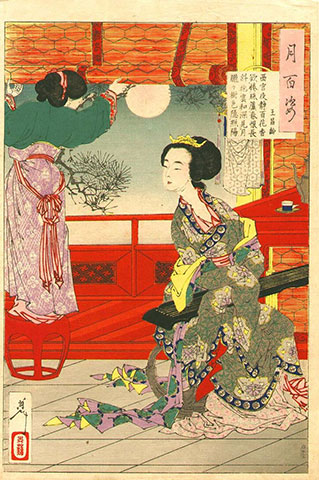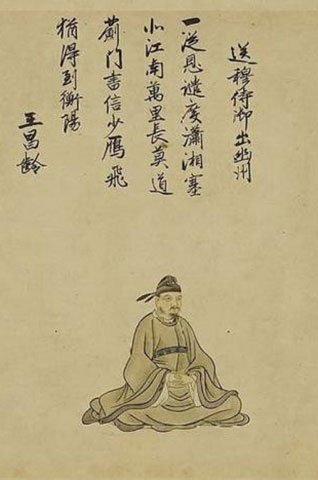I Ching, Yijing or Zhou Yi
"Oracle of the moon": © 2000 LiSe
 Yi Jing, Oracle of the Moon
Yi Jing, Oracle of the Moon


To create feudal lords
封侯印
Verse 244
It seems it is masculine to pursue high office
Not to go entirely against social ways
To retire after winning merit
To be leasurely and carefree in the clouds and mists in twilight
Taking off the purple gauze robe
It is the true direction of the male dao
The three characters are the last three in the first sentence. The middle one also features in the Yijing (I Ching): feudal lord or marquis. In the course of time its meaning became a bit wider. There was not so much demand anymore for feudal lords, but a similar effect was being elected for a high office - to become a 'marquis' in a more contemporary way.
See wikipedia

Tsuki hyakushi, illustration by Yoshitoshi
In her quiet window
"The night is still and a hundred flowers are fragrant in the western palace.
She orders the screen to be rolled up,
regretting the passing of spring with the Yunhe across her lap.
She gazes at the moon,
the colors of the trees are hazy in the indistinct moonlight."
100 Aspects of the Moon #54, 1887.
A young wife encourages her new husband to join the Tang army and go off and fight the enemy at the border. The expectation is that he will return with honors. Most likely, the enemy were the Tibetans at the far west of the Chinese Empire or the Tartars to the north, but there were other enemies both foreign and internal with which the emperor had to deal with.
